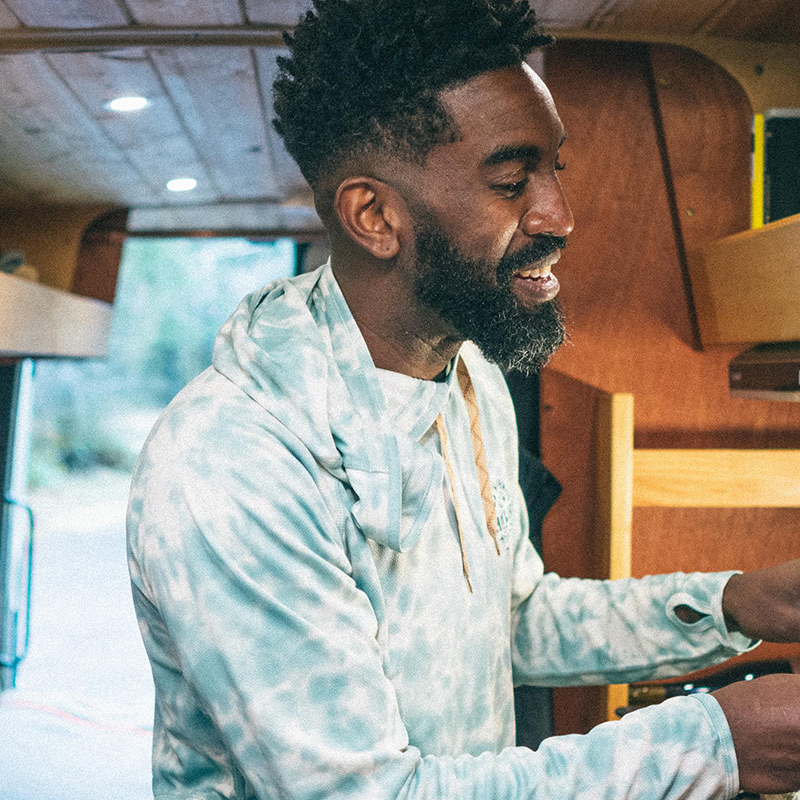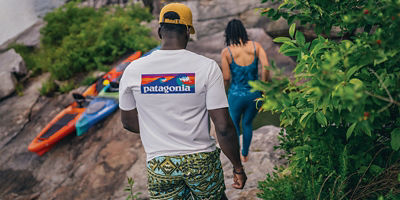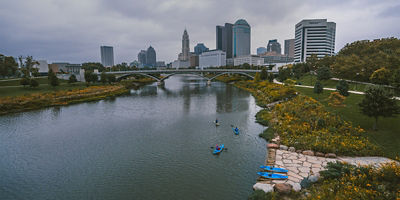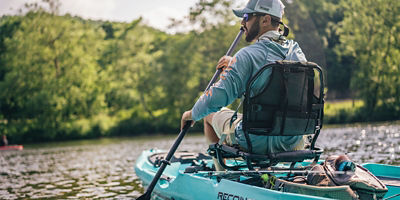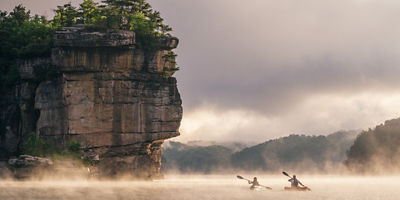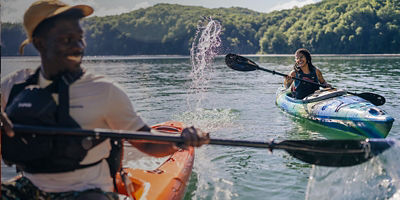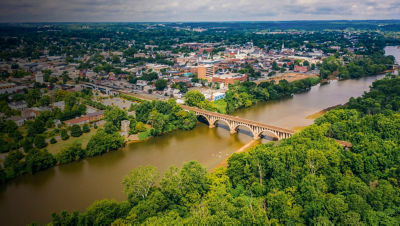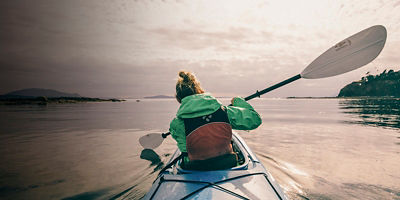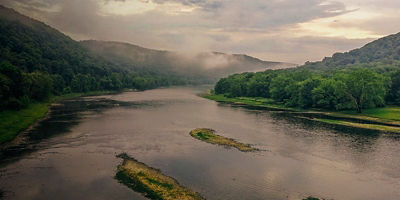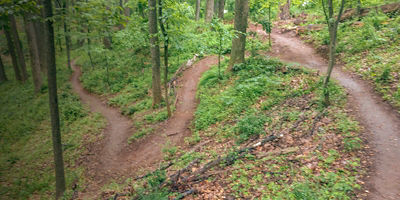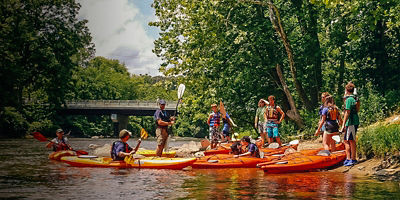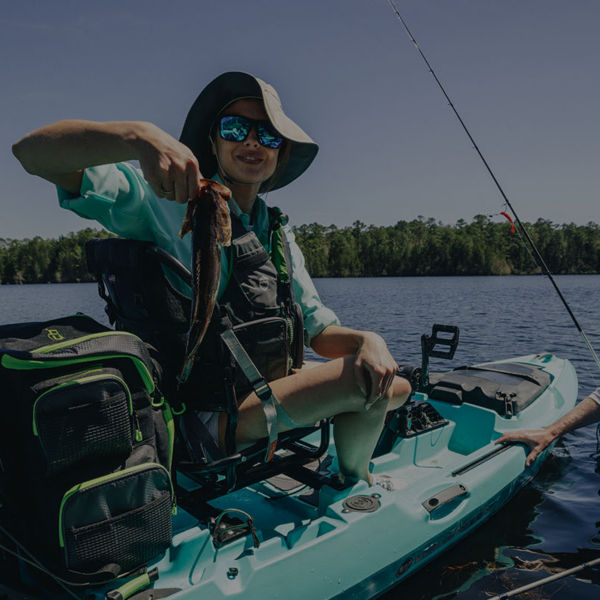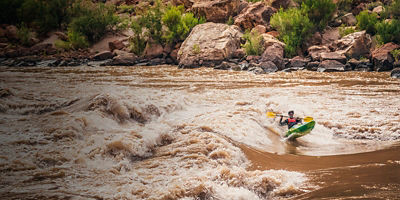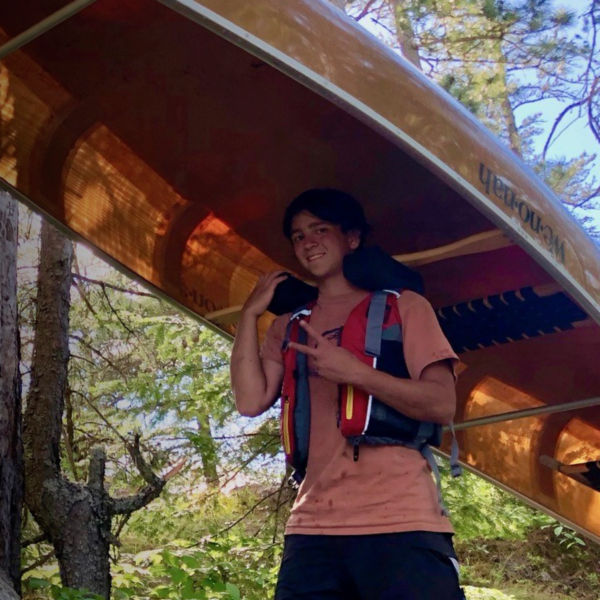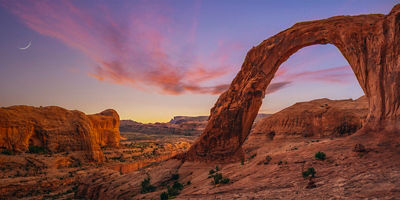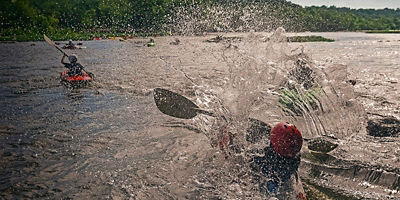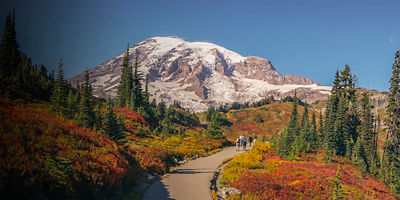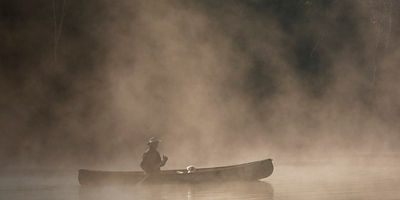
Almost every morning in the summer, Doug Barclift wakes up early and drives his home to the waterfront. There, not far from downtown Seattle, he opens his living room to customers. Some pay for his services—standup paddleboard rentals, instruction, and occasional guided trips run out of Big Bus Paddleports’s giant blue namesake—and some don’t. The latter just pop in for the company, to chat about the bus, and to spend a little time in a space that Barclift (he/him) intentionally designed to feel safe and welcoming. It’s all part of his mission to make watersports accessible—and inviting—to everyone.
Barclift’s love for the water—and sharing it—runs deep. It started with sailing, he says, which he found by accident.
“I was living in Baltimore, volunteering at a bicycle co-op in my free time, and one of my friends said, ‘I’m going to go to one of the other co-ops I work for and go sailing, want to come?’ I’d lived on the inner harbor for a long time at that point, and I never thought people actually took boats on the water because the water had to be toxic. But I said, ‘Sure, why not?’”
Barclift remembers the boat being a 42-foot cockpit ketch. And he remembers leaving the harbor feeling like magic.
“The minute we put the main sail up and set the jib and started cruising out of there at eight or nine knots, I started laughing like a crazy person,” he says. Barclift had worked on C-130 cargo planes in the U.S. Air Force and had been deployed to the otherworldly desert landscapes of Iraq, but being out on the open water was like nothing he’d ever experienced.
“It was like someone telling me, ‘You can be an astronaut and you can go to the bottom of the ocean, too. You don’t have to be Jacques Cousteau,’” he says.
A few years later, Barclift moved to New Orleans where he both worked on and raced sailboats. Around that time, he discovered climbing—and the van-dwelling crowd that accompanies it—and the seed was planted in his mind of a mobile lifestyle. It took seven years for that seed to come to fruition. Seven years, a hard divorce, and a whole lot of grief.
“In 2016 I moved to Washington [State] with my family. It took us four days to drive there, and within 11 days my stepfather died. I had to leave my family behind and move back to Baltimore to help my mother run her business for six or eight months,” he says. Within that same period, several other loved ones passed away. Amid all the grief and pain, Barclift says he didn’t get back on the water until 2018. That’s when he started volunteering with Soul River, the fly fishing-focused youth and veteran outreach nonprofit founded by fellow veteran Chad Brown.
“This was right before me and my ex split up,” Barclift remembers. “I kept thinking, ‘I can still fix this,’ but what was really happening was that the relationship was over and what I needed was something to live for.”
“Soul River gave me a really strong community,” Barclift says. “It put me back on the water in a different way, in a way that was really accessible in Washington.” And, he says, being around other veterans was a new experience: For perhaps the first time, he was with people who fully understood him and had experienced their own traumas in a way he could relate to on a deep level. After four years of volunteering, supporting veterans, and teaching them how to fly fish, Barclift was ready to pursue a new dream: launching his dream business.



